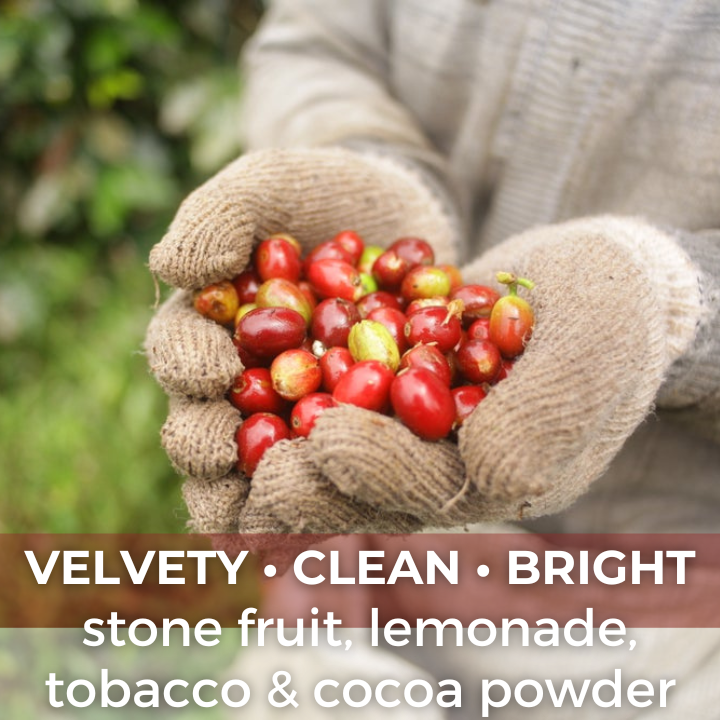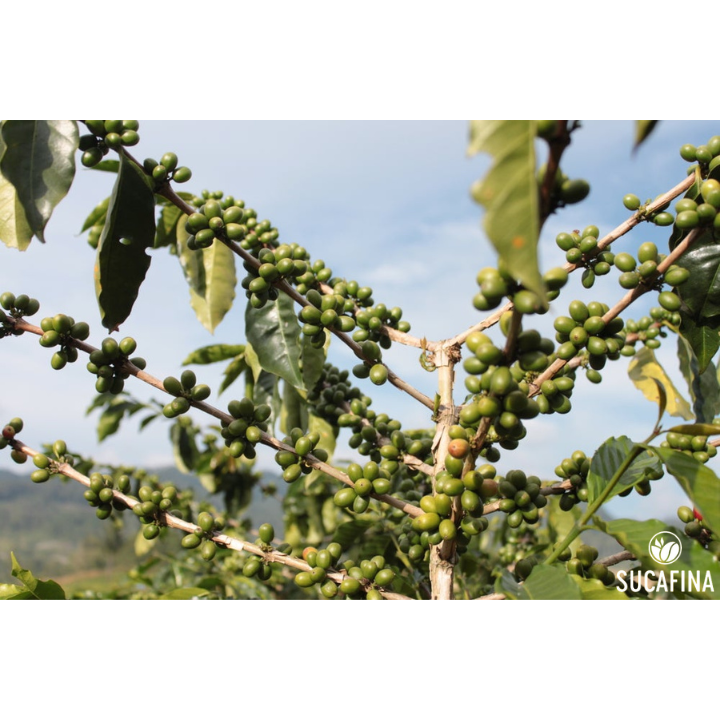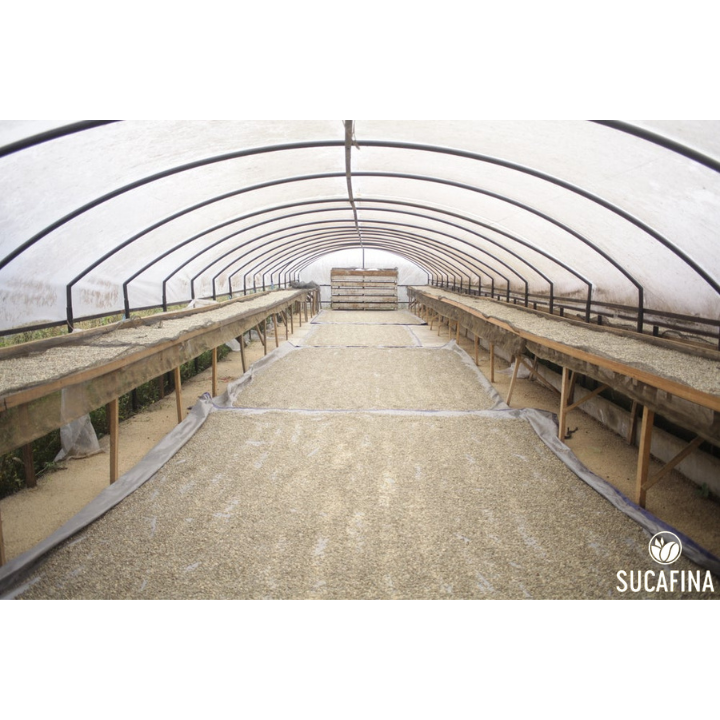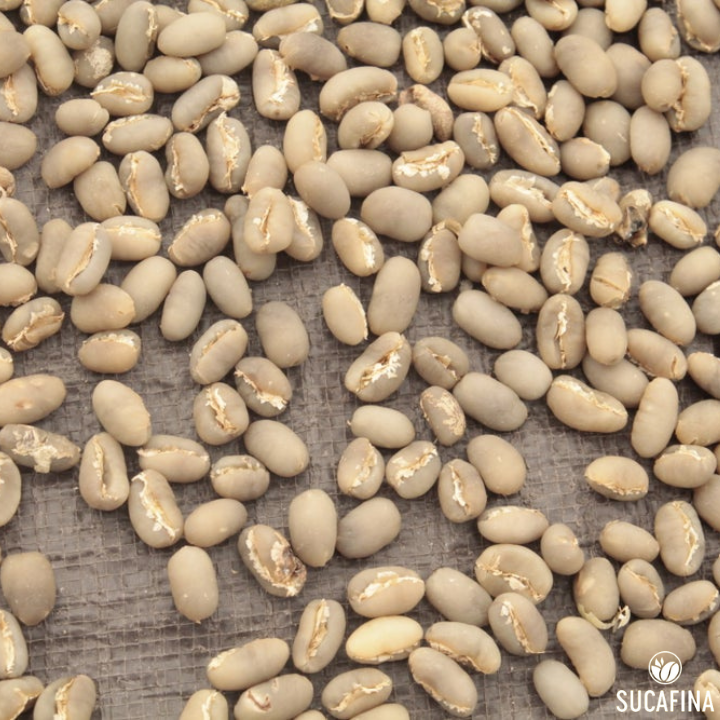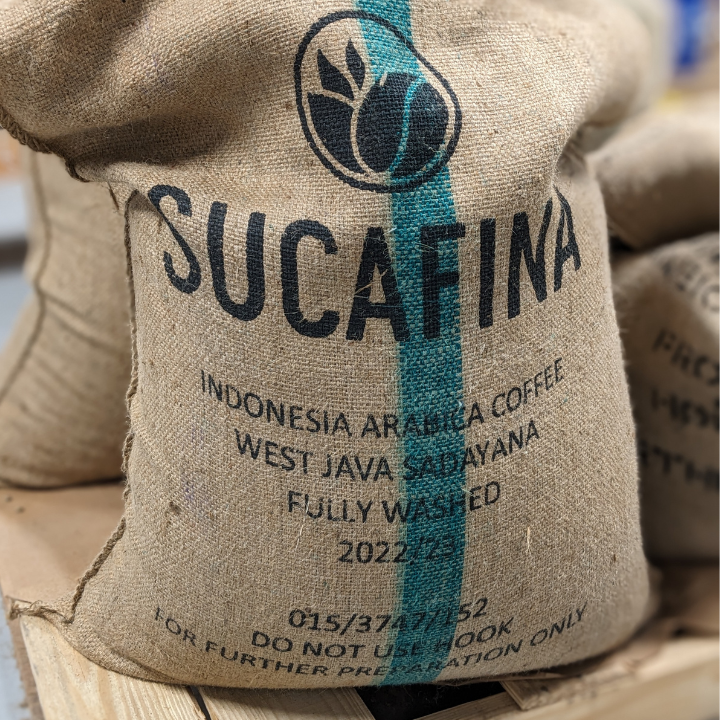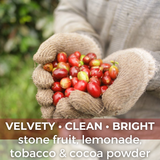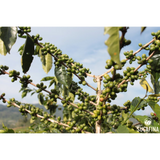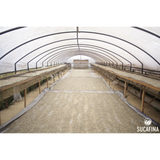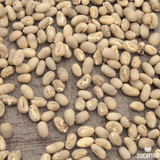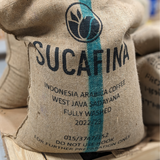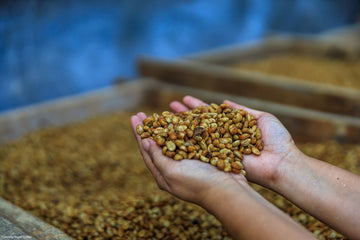Java Bandung Sadayana Washed
This rare fully washed Grade 1 coffee from West Java is a breath of fresh air in our Indonesia lineup! It's got nearly the body and texture of a traditional wet-hulled Java along with some of the flavor notes we're used to like pipe tobacco and cocoa powder, but without all the earthy bite! Instead, there's a sweet and gently bright note of lemonade along with stone fruit. Possibly the cleanest cup from this region we've ever had.
This coffee from West Java is a rare treat! The vast majority of coffee we get from Indonesia is processed in the traditional method known as “giling basah”, commonly known simply as wet-hulled. While very similar to washed in many respects, during the final phase of processing, the protective layer of parchment, or hull, is removed from the coffee earlier than in other processing methods. Usually it’s removed after the coffee has fully dried to 10-12% moisture and is ready for export. With wet-hulling, the hull is removed while it’s still higher in moisture. You know, while it’s still kinda wet! This unique method tends to impart an earthy bite and complexity to the cup. Some people love it, some people can’t stand it.
Some washing stations in Indonesia have begun trying other processes in order to showcase their local crop in a different light. That means finding a fully washed coffee like this one from the Sadayana washing station gives us a rare glimpse into another side of Indonesian coffee. And it's a carefully processed Grade 1 sorting to boot! It’s still got tons of body and texture, but it’s slightly lower than wet-hulled Java, placing it more in line with a fully washed Guatemala or Colombia. Furthermore, wet-hulling drastically reduces brightness and acidity in the cup. This version has a beautifully bright, but still fairly gentle lemonade vibe! Couple that with some gently sweet stone fruit and the usual warm pipe tobacco and cocoa powder notes and it’s an absolutely delicious cup. Excellent as a daily driver or single origin espresso! Whether you’re typically a fan of Indonesian coffee or not, you’ve got to try this one, it just may surprise you.
Reminder! This coffee is raw, you must roast it before brewing
Arrival Date: March 1, 2024; US Arrival: 2023, packed in Ecotact
Acidity & Brightness: Gently bright and moderately sweet
Balance & Finish: Fairly balanced with a clean finish
Body & Texture: Full to rich body, velvety texture
Flavors: Stone fruit, lemonade, tobacco & cocoa powder
Grade: Grade 1, 1,200 to 1,700 masl
Processing: Fully washed; Coffee is placed in a ceramic tile-lined fermentation tank and fermented for 16 hours. Following fermentation, parchment is washed in clean water and then laid to dry on raised beds for 7-15 days
Grower: 200+ Sunda farmers from the Gunung Halu & Gunung Tilu towns in West Java | Sadayana Washing Station
Region: Gunung Halu & Gunung Tilu towns in West Java, Indonesia
Varieties: Sigarar Utang, Timor, Typica
Recommended Roast Range: City+ to Full City+ (light-medium to medium-dark)
Start with a Full City (Full Medium) roast. This is best noted by waiting until first crack has trailed off but before second crack really begins. Most folks will likely prefer this coffee right at medium but feel free to take it darker (into 2nd crack) to bring out more bittersweet chocolate notes and add a bit of body at the expense of brightness. Since this coffee is fully washed, it will take on a variety of roasts and brewing methods well. Light-medium roasts, or as first crack is trailing off, will give you an emphasis on the origin notes mentioned as well as favor bright, sweet lemonade.
Sucafina Trading - "Sadayana is named for the Sundanese word for working together. The Sunda are one of the three largest ethnic groups on Java and the area where Sadayana washing station is located is majority Sundanese. Approximately 200 farmers deliver cherry to Sadayana washing station.
Sucafina financed the construction of Sadayana washing station in March 2022. The station is operated by a local partner and farmers contributing cherry to the station have access to Sucafina services including agronomic support and affordable seedlings.
While Indonesia is known for its Wet Hulled processing method, a increasing number of cooperatives and processors are expanding their processing methods. This helps them tap into new markets.
Farmers selectively handpick ripe, red cherry and deliver it to Sadayana washing station. At intake, cherry is floated in a mechanical siphon and pulped. Coffee is placed in a ceramic tile-lined fermentation tank and fermented for 16 hours. Following fermentation, parchment is washed in clean water and then laid to dry on raised beds. Parchment is raked frequently to ensure even drying. It takes 7 to 15 days for parchment to dry.
Indonesia has a long coffee producing history, but recently their coffees have been overlooked by the specialty market. Thanks to our innovative and ever-expanding supply chain, we are proud to bring you high-quality coffees from many of Indonesia’s unique regions, accompanied by in-depth traceability information.
Indonesia is perhaps best known for its unique wet hulling process (giling basah). Though its exact origins are unclear, wet hulling most likely originated in Aceh during the late 1970s.
Wet hulling’s popularity can be attributed to producers’ need for prompt payments. It was also adopted specifically by many producers who lacked the drying infrastructure that was needed to shelter drying parchment from the high humidity and inconsistent rainfall typical in Sumatra. At higher elevations with constant humidity and unpredictable rainfall, drying can prove to be slow, risky and difficult.”





